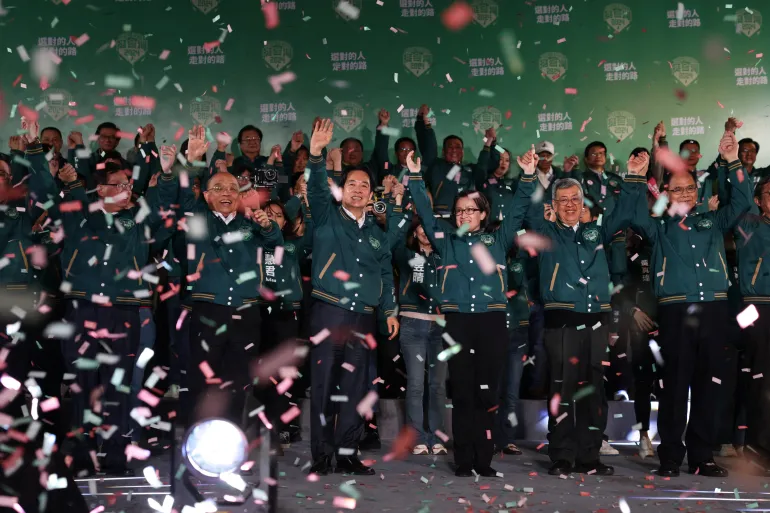In a surprising turn of events, William Lai Ching-te from Taiwan’s governing Democratic Progressive Party (DPP) has emerged victorious in the country’s presidential election, despite facing repeated attacks from China, which called him a dangerous separatist. The election holds significant importance due to Taiwan’s disputed political status, with China claiming the island as part of its territory. Lai’s win has defied China’s warnings and further strained the already tense relationship between the two nations.
Lai, who currently serves as the vice president, was in a three-way race with Hou Yu-ih from the conservative Kuomintang (KMT) and former Taipei Mayor Ko Wen-je from the Taiwan People’s Party (TPP). Lai secured 40.2 percent of the votes cast, according to the Central Election Commission. Both opponents conceded defeat and congratulated Lai on his victory.
In his victory speech, Lai expressed gratitude to the Taiwanese people for “writing a new chapter in our democracy.” He emphasized his commitment to democracy and a desire for healthy exchanges with China based on dignity and parity. However, he also vowed to safeguard Taiwan from continuing threats and intimidation from China.
China’s response to Lai’s win was filled with assertiveness, with the Taiwan Affairs Office spokesperson Chen Binhua reiterating that Taiwan is China’s Taiwan. China maintained its stance on the one-China principle and firmly opposed any activities promoting “Taiwan independence” or foreign interference.
The international community, including the United States, closely watched the elections. However, when asked for his reaction to the results, US President Joe Biden stated that Washington does not support Taiwan’s independence. The Biden administration has expressed concerns about the potential escalation of conflict with Beijing.
Taiwan’s elections have always been significant due to China’s claims over the island and its outlying territories. While Taiwan has been self-governing since the 1940s, China has not ruled out the use of force to achieve its ambitions. This election has highlighted the Taiwanese people’s resilience in resisting external influences, particularly from China.
Lai’s victory signifies a continuation of the DPP’s hold on power for the past eight years under President Tsai Ing-wen. However, it remains to be seen how Lai’s presidency will navigate the complex relations with Beijing, as China has consistently pursued its own course regardless of Taiwan’s actions.
China has increased military pressure on Taiwan in recent years, leading to concerns about a potential invasion. Chinese President Xi Jinping has repeatedly emphasized the “inevitability” of Taiwan’s unification with China. Despite Lai’s efforts to remain open to dialogue, the future of Taiwan-China relations largely depends on Beijing’s intentions.
In conclusion, William Lai Ching-te’s victory in Taiwan’s presidential election has defied China’s warnings and further complicated the already tense relationship between the two nations. The election’s outcome highlights the Taiwanese people’s commitment to democracy and their resistance to external influences. As Lai assumes the presidency, the focus will now be on how he manages the complex relations with China while safeguarding Taiwan’s interests.




